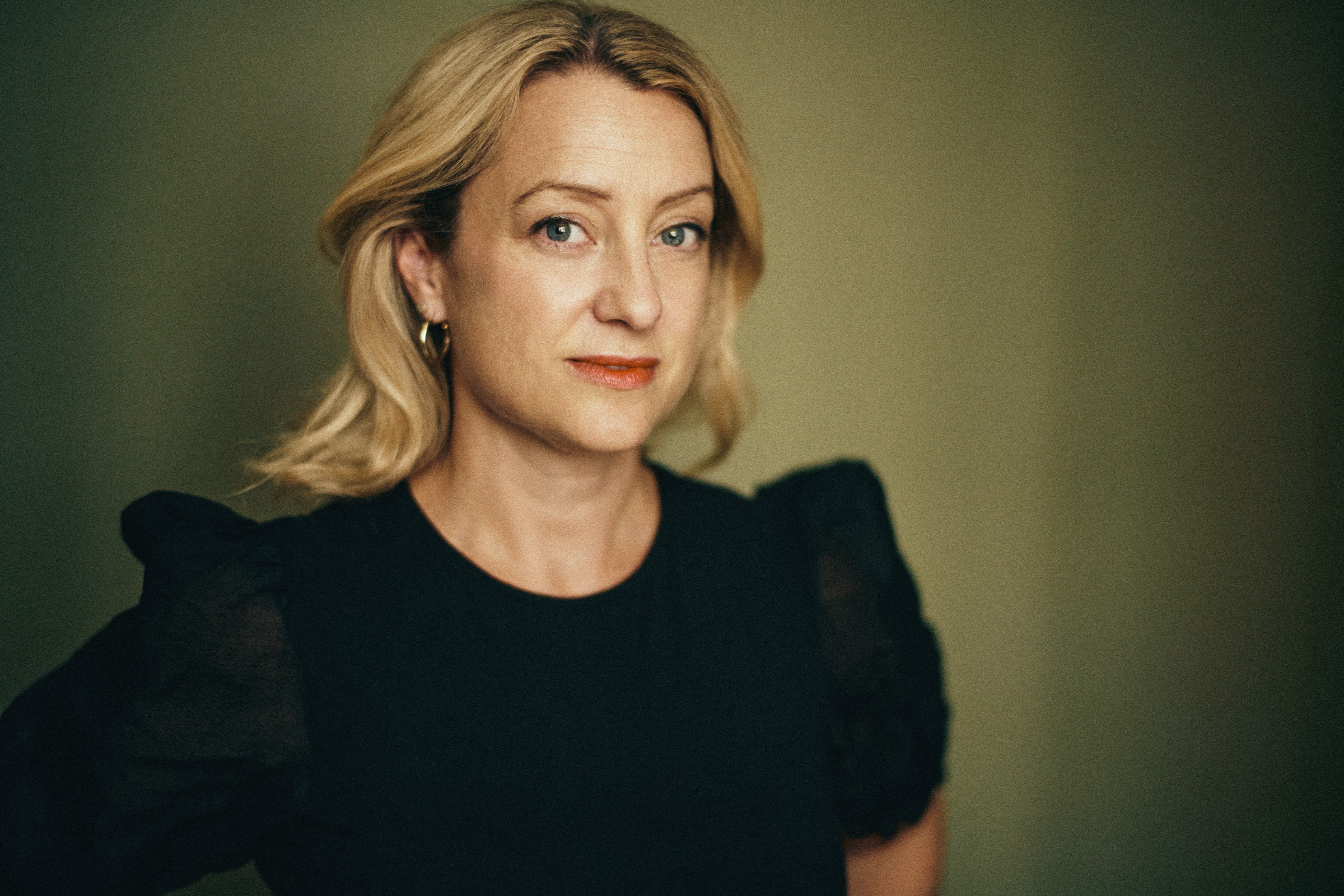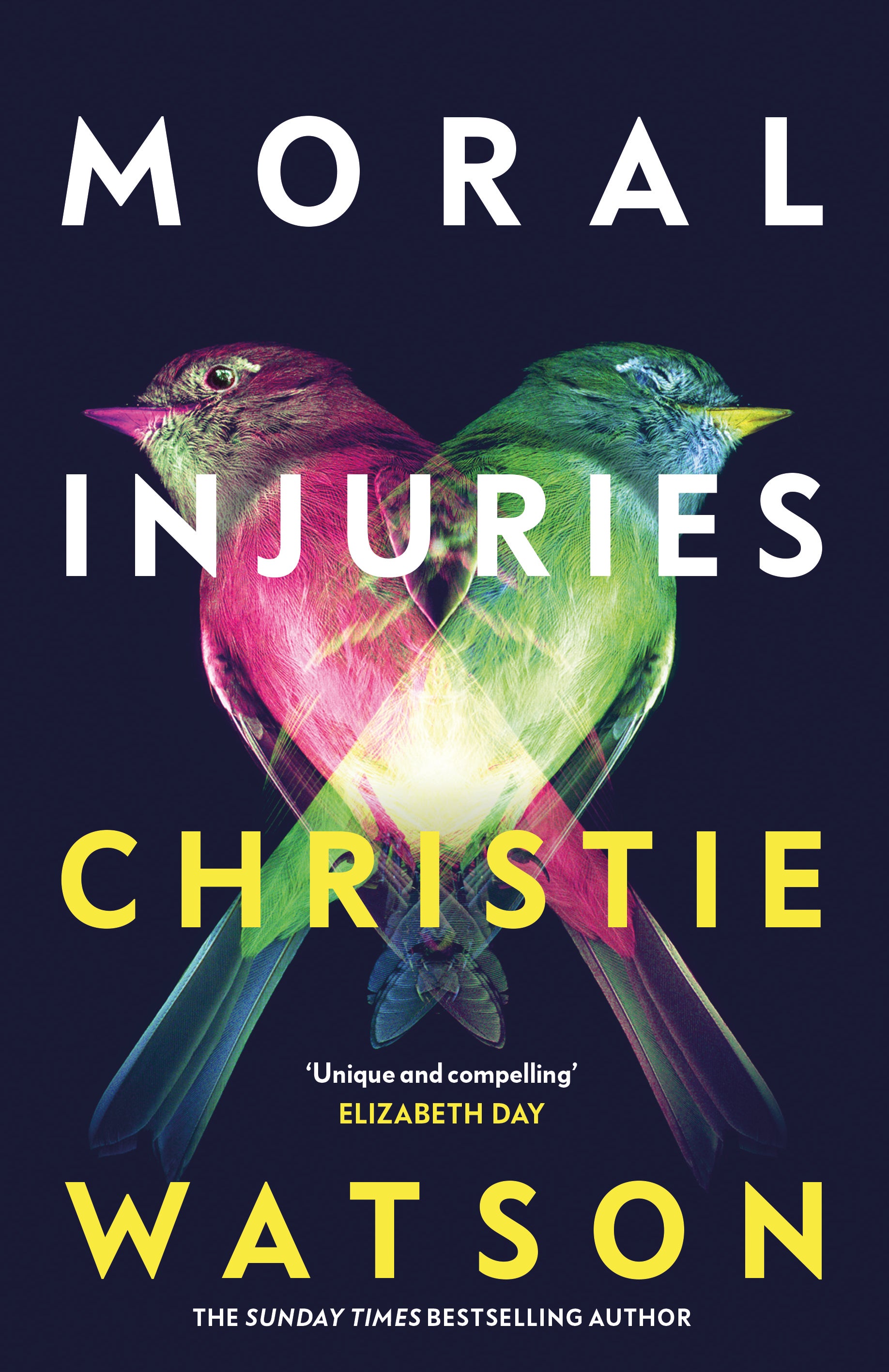Costa-award winning novelist Christie Watson: ‘I’m doing a form of literary whistleblowing about the NHS’
Before she became a bestselling author, Christie Watson worked as a nurse for the NHS. She talks to Nick Duerden about why nurses hated being clapped during the pandemic, why her new novel depicts health professionals as real people rather than saints, and her ‘woo woo’ solution for burnt out doctors


Whenever a former medic turns writer, and becomes intent on lifting the lid of what really happens on hospital wards and within consultation rooms, it’s easy to imagine the NHS’s top brass holding their heads in their hands and keening quietly to themselves. Adam Kay’s 2016 memoir This Is Going to Hurt, about his time as an NHS doctor, might have been a critical and commercial hit, but it shed uncomfortable light on the often barely-contained chaotic reality of life as a medic.
And now here comes Christie Watson, a former nurse turned Costa award-winning writer to do something similar with her new novel Moral Injuries. At home in her kitchen in south London, she grins impishly.
“The NHS’s worst nightmare? I do hope that’s not going to be the headline!” she says. Shifting in her seat as if to eradicate a sudden discomfort, she continues. “I’m actually very pro the NHS, and how to help save it is the heartbeat of everything I do. What can I do with the platform I have? How can I shout about issues that matter? At the moment, the fact that doctors and nurses are suffering so much and leaving in droves is a really big problem, but unless people know about it then it won’t be solved. So, I suppose that, yes, in a way what I’m doing is a kind of literary whistleblowing.”
Throughout her writing career, Watson has written warmly affecting novels (Tiny Sunbirds Far Away, Where Women Are Kings, which won the Costa First Novel Award in 2011) alongside a series of memoirs (The Courage to Care, Quilt on Fire, The Language of Kindness) the latter mining her experiences on the ward. Moral Injuries is a combination of both. It tells the story of three female doctors, two in hospitals, one a GP, and firm friends for 30 years. Their bond was indelibly formed back while still students after a hedonistic night ended in a tragedy that morally compromised each of them. Now, three decades on, another tragic event occurs that requires further collusion in order to protect not only their own lives but those of their families.
This deep dive into professional ethics, which reads like an ITV thriller, Sunday nights, 9pm, is likely to leave the reader deeply unsettled, and perhaps never again willing to view healthcare professionals in quite the same light. Doctors and nurses, the author suggests, are every bit as fallible as the rest of us. To think otherwise would be naive.
“They’re just like everybody else, of course they are!” says Watson. “I wanted to explore three very flawed women who just happen to be doctors at the top of their game, and also to reflect the friendship that exists between medical colleagues in general, and the teamwork, these things that hold them together.”
Watson, 47, who last year married her childhood friend of 44 years, was born and raised in Stevenage, and left home at 16. Not sure what she wanted to do with her life, she ended up training to be a nurse at the age of 17. “And I loved it straight away, then slowly worked my way up.” She worked in various hospitals throughout her career, including Great Ormond Street and Guys, and at St Thomas’s served as a resuscitation officer and clinical member of the crash team. It was only after her daughter was born in 2005, during maternity leave, that she started writing. It felt like a leap in the dark. “I’ve always been a book fanatic, but had never been around artists or writers, so this kind of life wasn’t really on my radar.”
Nevertheless, she was good at it. Her 2018 memoir, The Language of Kindness, was a riveting, and at times critical, account of her many years as a nurse, and became a Sunday Times bestseller. “The then health minister, Jeremy Hunt, wrote me a letter saying how much he enjoyed it,” she says. With promotional duties for the book taking up increasing amounts of her time, she left nursing late that year.
There was this whole hero/angel narrative around care workers, and that used to p*** us off, frankly
Hunt may be a fan, but Watson is scornful for the way the current Tory government has left the NHS woefully underfunded. “It’s under-resourced and understaffed. The people who work in it are wonderful and their jobs are difficult. Their patients deserve better, too.” Her thoughts on the challenges they face clarified during the pandemic, when she briefly returned to nursing, working at Guys and the NHS Nightingale hospital at the ExCeL centre to help out on the frontline.
“There was this whole hero/angel narrative around care workers, and that used to piss us off, frankly, because if we were heroes, then we could ultimately be martyrs, too. It didn’t matter if we had appropriate PPE, or were paid appropriately. Hero worship,” she warns, “is a dangerous thing. Previously, we used to revere doctors as gods, but after all the clapping for the NHS, there was a lot of patient rage, people feeling that they were no longer getting the level of care they deserved – and rightly so. But the anger was misdirected towards healthcare professionals when it was the government who’d caused this s*** storm.”
These days, she still works within the medical community, but no longer at its coalface. She’s a Professor of Medical Humanities at UEA, and when I ask her to explain, she laughs.

“I thought you might say that. It focuses on the idea that the arts and humanities have what medicine needs,” she says. “We try to teach doctors, through creative writing sessions, how to focus on narrative, and the story of illness. It’s an emerging discipline in the UK, but in the US it’s pretty well established. They even have dance lessons for doctors over there!”
So-called soft skills, she suggests, tend to be overlooked by many in the medical community, but these are actually crucial to modern treatment: how best to give bad news, how to listen properly to patients.
“All of us can benefit from an understanding of deep listening, and of taking a holistic view of a patient’s story,” she suggests. “People no longer come into hospital with a simple or straightforward illness or disease anymore. What we’re seeing now is people with a myriad of issues that’s often really difficult to prescribe a pill for. They might be suffering existential concerns, or emotional manifestations of pain. The very nature of suffering has changed. Treatment has to change with it.”
Maintaining a doctor’s mental health is as important as a patient’s
Many within the medical community have proved receptive to her teachings. Others, not so much.
“Yes, some colleagues do consider what I’m talking about to be woo woo, but on the other hand they are then having burnout and breakdowns. Maintaining a doctor’s mental health is as important as a patient’s, and the research is clear: it fuels teamwork, resilience; it fosters empathy, and it benefits all.”
Christie Watson might just be not so much the NHS’s worst nightmare, then, but a key part of its future.
“We’re ALL human beings,” she says, adding that that goes for the staff as well as patients. “We’re flesh and blood. We all have a story, and we want to be listened to.”
‘Moral Injuries’ is out now and published by W&N
Subscribe to Independent Premium to bookmark this article
Want to bookmark your favourite articles and stories to read or reference later? Start your Independent Premium subscription today.
Join our commenting forum
Join thought-provoking conversations, follow other Independent readers and see their replies
Comments